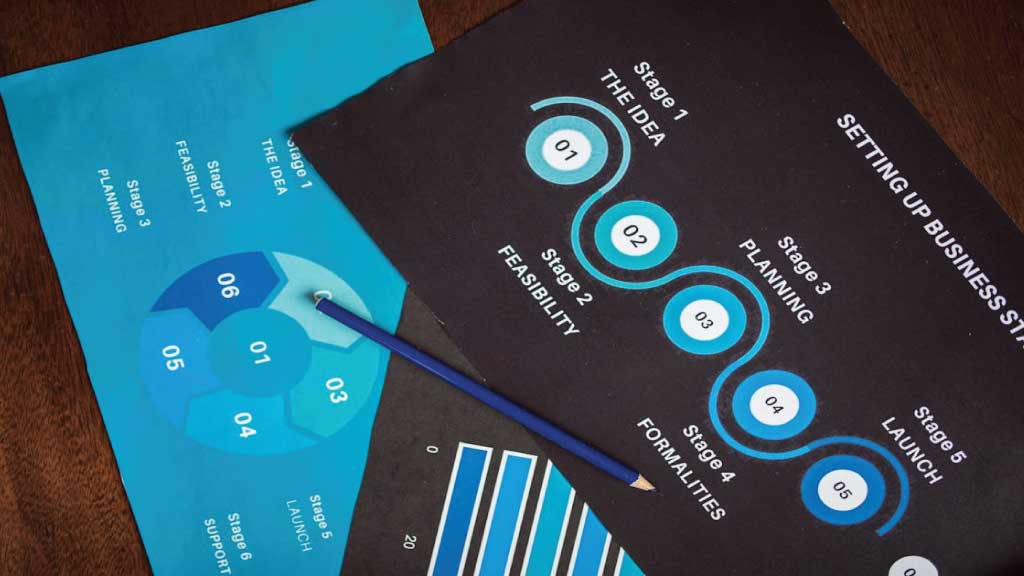Revenue expenditure encompasses the financial resources allocated by a company or organization towards its routine operational activities essential for revenue generation. These expenditures, incurred on a regular basis, play a fundamental role in upholding the ongoing functions and vitality of the business. From salaries to utilities, raw materials to maintenance costs, each expenditure is a vital cog in the machinery of daily operations, collectively contributing to the sustenance and growth of the organization.
Here’s a breakdown of what revenue expenditure entails:
Revenue Expenditure Definition
Revenue expenditure encompasses the various costs associated with the day-to-day operations of a business. These costs are vital for sustaining the ongoing activities that enable the generation of revenue. Examples of such expenditures include salaries paid to employees, rent for office or production space, utilities such as electricity and water, raw materials necessary for manufacturing goods or providing services, expenses for maintenance and repairs, as well as marketing and advertising costs aimed at promoting the business and its offerings.
Nature of Expenses
The nature of revenue expenditures is characterized by their recurrence and their role in facilitating the smooth functioning of the business on a daily basis. Unlike capital expenditures, which involve investments in long-term assets or projects with enduring benefits, revenue expenditures are aimed at meeting the immediate operational needs of the business. These expenses do not result in the acquisition of assets or investments that will provide future economic benefits beyond the current accounting period.
Impact on Profitability
Revenue expenditure exerts a direct influence on the profitability of a business. Since these expenses are necessary for conducting business activities and generating revenue, they are subtracted from the total revenue earned to ascertain the net income or profit. Effective management of revenue expenditures is thus crucial for maintaining a healthy bottom line. By controlling these expenses without compromising operational efficiency, businesses can enhance their profitability and financial performance.
Recording in Financial Statements
In financial reporting, revenue expenditures are typically recorded as expenses in the income statement during the accounting period in which they are incurred. These expenses are recognized as part of the operating costs necessary to generate revenue. Unlike capital expenditures, which are capitalized and recorded as assets on the balance sheet, revenue expenditures are expensed immediately since they do not provide future economic benefits extending beyond the current reporting period. This treatment ensures that the financial statements accurately reflect the expenses associated with the period in question.
Tax Treatment
Revenue expenditure plays a significant role in determining the taxable income of a company and subsequently its tax liability. The general principle is that these expenditures are deductible from the taxable income, effectively reducing the amount of income subject to taxation. By deducting revenue expenditures from the revenue earned, businesses can lower their taxable income, thereby decreasing their tax liability and preserving more of their earnings for operational needs or investment in growth initiatives.
However, it’s essential to note that the tax treatment of revenue expenditures may vary depending on the specific tax laws and regulations applicable in the jurisdiction where the business operates. Different countries or regions may have distinct rules governing the deductibility of certain expenses or the timing of their recognition for tax purposes. Additionally, there may be specific provisions or limitations related to certain types of expenditures, requiring businesses to adhere to specific guidelines to ensure compliance with tax laws.
Navigating the complexities of tax treatment for revenue expenditures requires careful consideration and understanding of the relevant regulations. Businesses often rely on tax professionals or consultants to ensure compliance with tax laws and optimize their tax position while maximizing deductions within the bounds of legal requirements.
Importance of Management
Effective management of revenue expenditure is paramount for maintaining the financial health and sustainability of a business. These expenses constitute a significant portion of the overall costs incurred by a company and directly impact its profitability. Therefore, monitoring and controlling these expenses are essential tasks for management.
By implementing robust management practices, businesses can optimize operational efficiency and maximize profitability. Monitoring revenue expenditures involves tracking and analyzing expenses to identify areas where costs can be reduced or efficiencies improved. This may entail negotiating better terms with suppliers, implementing cost-saving measures, or streamlining processes to eliminate wasteful spending.
Controlling revenue expenditures requires establishing budgets, setting spending limits, and enforcing policies and procedures to ensure compliance with approved expenditure levels. Effective management also involves regular reviews and adjustments to adapt to changing business conditions or priorities.
Ultimately, efficient management of revenue expenditures enables businesses to allocate resources more effectively, enhance profitability, and achieve long-term financial success.
Differentiation from Capital Expenditure
Distinguishing between revenue expenditure and capital expenditure is crucial for proper financial reporting and decision-making. While both types of expenditures involve spending money, they serve different purposes and have distinct accounting treatments.
Revenue expenditure pertains to costs incurred for day-to-day operations and is expensed immediately on the income statement. These expenses are necessary for maintaining the normal functioning of the business and are typically recurring in nature.
In contrast, capital expenditure involves investments in long-term assets or projects that provide benefits over multiple accounting periods. Examples of capital expenditures include the purchase of property, plant, and equipment, as well as expenditures on research and development or significant infrastructure projects.
Capital expenditures are capitalized and recorded as assets on the balance sheet, where they are subject to depreciation or amortization over their useful lives. This treatment reflects the notion that capital expenditures contribute to the generation of future economic benefits for the business.
Understanding the distinction between revenue expenditure and capital expenditure is essential for accurate financial reporting and analysis. It enables businesses to make informed decisions regarding resource allocation, budgeting, and strategic planning, ensuring the effective utilization of financial resources for sustainable growth and success.
Examples
Revenue expenditure encompasses a wide range of costs incurred in the day-to-day operations of a business. Some common examples include:
1- Wages and Salaries: Payments made to employees for their services.
2- Rent: Costs associated with leasing office or production space.
3- Utilities: Expenses for electricity, water, and other essential services.
4- Repairs and Maintenance: Costs incurred to keep equipment, machinery, and facilities in working order.
5- Advertising and Marketing Expenses: Expenditures aimed at promoting the business and its products or services.
6- Office Supplies: Costs associated with purchasing consumable items for office use.
7- Insurance Premiums: Payments made to insure the business against various risks and liabilities.
These examples illustrate the diverse nature of revenue expenditures and highlight their importance in supporting the ongoing operations and growth of a business. By managing these expenses effectively, businesses can enhance their profitability and competitiveness in the marketplace.
Understanding revenue expenditure is essential for businesses to manage their finances effectively and make informed decisions regarding resource allocation and budgeting. By controlling these expenses and optimizing operational efficiency, businesses can enhance their profitability and sustainability in the long run.
Related Posts:
Customer Relationship Management
Maximizing Profitability: Secrets of Successful Business
Effective Business Management Techniques for Success
Conclusion:
In conclusion, understanding revenue expenditure is crucial for businesses to effectively manage their finances and ensure sustainable growth. These day to day operational expenses, ranging from salaries to maintenance costs, are essential for generating revenue and maintaining the smooth functioning of the business. By recognizing the significance of revenue expenditure, businesses can implement strategies to optimize operational efficiency, control expenses, and ultimately enhance profitability. Through diligent management and strategic decision making, businesses can navigate the complexities of revenue expenditure and position themselves for long term success in today’s competitive landscape.
FAQs about Revenue Expenditure:
What are some examples of revenue expenditure?
Revenue expenditure includes various day to day operational costs such as salaries, rent, utilities, maintenance expenses, and marketing expenditures. These expenses are necessary for sustaining the business’s ongoing operations and generating revenue.
How does revenue expenditure differ from capital expenditure?
Revenue expenditure is incurred for day to day operations and is expensed immediately on the income statement. In contrast, capital expenditure involves investments in long-term assets or projects that provide benefits over multiple accounting periods.
Why is effective management of revenue expenditure important?
Effective management of revenue expenditure is crucial for maintaining the financial health of the business. It helps in optimizing operational efficiency, controlling costs, and maximizing profitability, ultimately contributing to the long-term sustainability of the business.
How are revenue expenditures recorded in financial statements?
Revenue expenditures are typically recorded as expenses in the income statement during the period in which they are incurred. They are expensed immediately since they do not provide future economic benefits beyond the current accounting period.
What is the tax treatment of revenue expenditure?
Revenue expenditure is usually deductible from the taxable income of the company, reducing its tax liability. However, tax laws and regulations may vary depending on the jurisdiction. It’s essential for businesses to adhere to the relevant tax regulations and seek guidance from tax professionals to ensure compliance and optimize their tax position.

ZAK Engineer is an experienced engineer with 15 years in the mechanical and industrial sectors. Holding advanced degrees and multiple certifications in engineering, he combines technical expertise with a passion for writing to provide valuable insights into engineering innovations and business strategies. His content empowers professionals to excel in their fields and stay updated with the latest industry trends.

